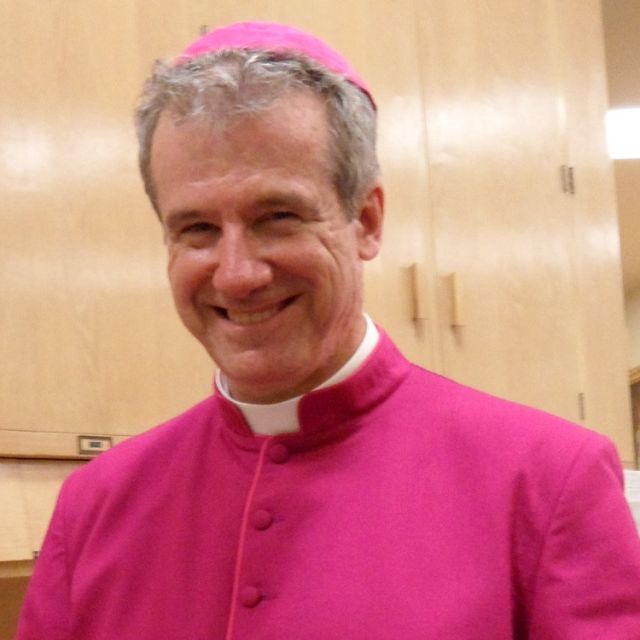Lépine’s appointment earlier this year, after only six months as auxiliary bishop, “came as a shock to some people,” Zucchi said.
“He came out of left field. I don’t think many people expected this,” he said.
“In many ways, his appointment caught people by surprise the way Cardinal (Marc) Ouellet’s caught people by surprise when he came back to Quebec. The surprising way in which it happened is a sign that it really was God’s doing.”
Ouellet, who in 2010 left Quebec to become Prefect of the Congregation for Bishops, one of the top positions in the Holy See, advises Pope Benedict XVI on candidates for the episcopacy. Among other surprising and innovative appointments was that of Ouellet’s replacement a little over a year ago, Archbishop Gerald Cyprien Lacroix, who had served less than two years as one of Ouellet’s auxiliary bishops.
Lépine and Lacroix’s appointments book end a process that saw other significant new appointments over the past year, including that of Archbishop Luc Cyr to Sherbrooke, Archbishop Paul-André Durocher to Gatineau, Auxiliary Bishop Thomas Dowd in Montreal, Bishop Noel Simard to Valleyfield and Bishop Luc Bouchard to Trois-Rivières. Both Durocher and Bouchard are Ontario francophones named to prominent roles in Quebec.
The previous generation of bishops were “left confused” by the effects of the Quiet Revolution that quickly emptied Quebec churches in the 1970s, Zucchi said.
“In the aftermath of the Quiet Revolution, they didn’t know how to respond and quite how to read the Church’s role in society,” he said.
“As people abandoned the Church and church attendance dropped, the bishops rightfully thought about how the Church could be meaningful once again. And perhaps they had difficulty answering that question. They tried many experiments, yet numbers continued to drop.”
Efforts to “be relevant in the political and social engagement that continued in the ’70s, ’80s and ’90s were perhaps latching on to fads that didn’t express the Church’s unique perspective on the world,” he said.
The young people who are coming back to the Church are not interested in fighting the battles of their parents’ generation, instead they are deeply curious about the faith, he said.
“I think these bishops are attuned to young people because they understand the political and even religious battles of their parents’ generation are not relevant to the young people,” the historian said. “They really don’t care about the Quebec separation issue or women’s ordination.
“Young people are coming back to the Church for themselves, for an answer to spiritual meaning. These new bishops understand that.”
But they may have one challenge ahead of them, Zucchi said.
“That is the challenges as they deal with the structures and offices that become quite ingrained in their ways.”
Montreal’s Archbishop Lépine latest appointment in ‘rejuvenated’ Quebec
By Deborah Gyapong, Canadian Catholic NewsOTTAWA - Archbishop Christian Lépine’s installation April 27 as archbishop of Montreal inaugurates a new era for the Quebec episcopacy, said a McGill University historian.
“Now there’s a new generation of bishops who are very much in tune with the needs of young people in their dioceses, and this is crucial for the new evangelization,” said John Zucchi.
A generation of bishops who were in their 70s, “many of them concerned with a 1970s and ’80s way of looking at the Church,” have retired, replaced in recent years by a new age cohort that has “rejuvenated” the episcopacy and brought fresh perspective, Zucchi said.
Please support The Catholic Register
Unlike many media companies, The Catholic Register has never charged readers for access to the news and information on our website. We want to keep our award-winning journalism as widely available as possible. But we need your help.
For more than 125 years, The Register has been a trusted source of faith-based journalism. By making even a small donation you help ensure our future as an important voice in the Catholic Church. If you support the mission of Catholic journalism, please donate today. Thank you.
DONATE

